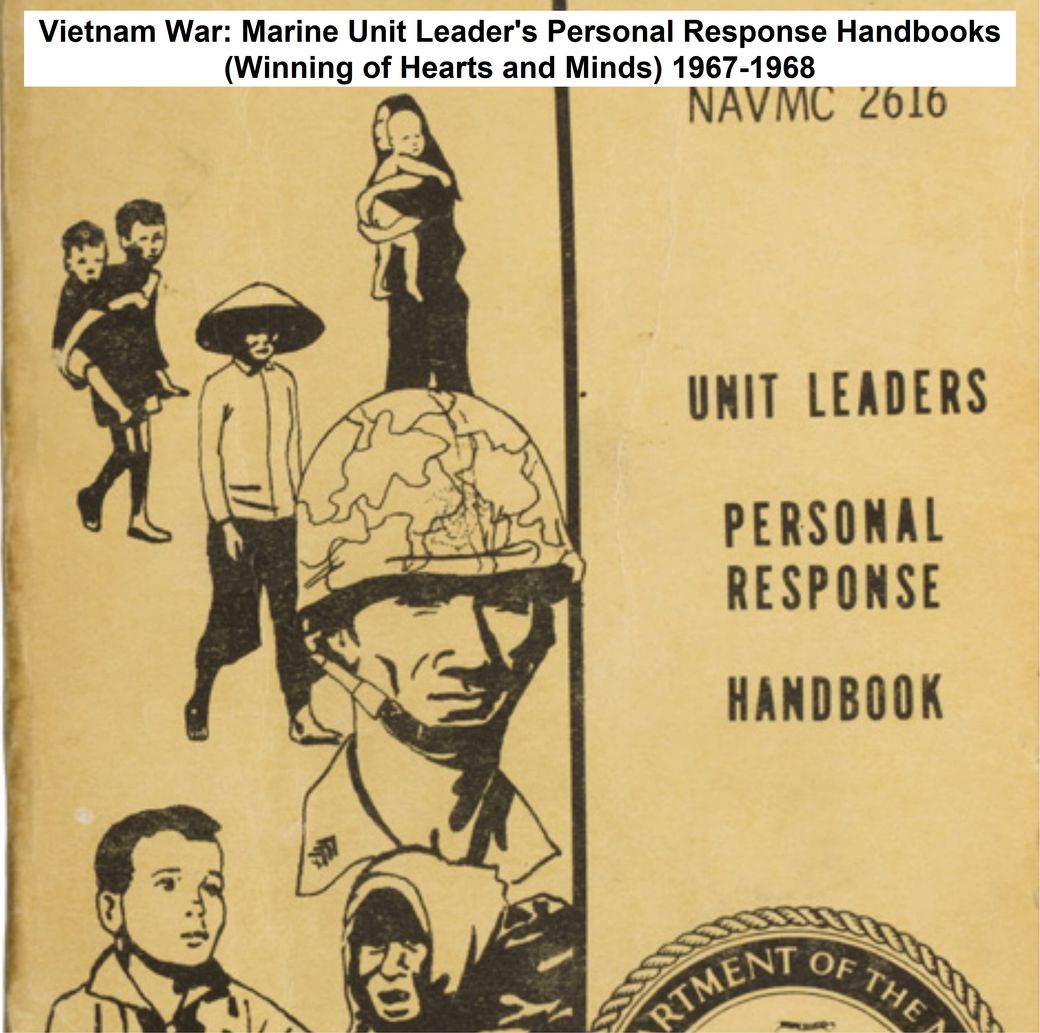
Vietnam War: Marine Unit Leader’s Personal Response Handbooks (Winning of Hearts and Minds) 1967/68
$1.90
Description
Vietnam War: Winning Hearts and Minds
1967:
- USMC – Unit Leader’s Personal Response Handbook – 1967 is created and published. This handbook aims to guide Marines in Vietnam in understanding Vietnamese culture to win their “lasting friendship and willing cooperation.” It emphasizes that winning the war of understanding is as crucial as winning the military conflict.
1968:
- USMC – Unit Leader’s Personal Response Handbook – 1968 (NAVMC 2616) is published. This is a compilation of materials, including previous publications from the Fleet Marine Force, Pacific, and the Chaplains Division, Bureau of Naval Personnel, in conjunction with the Personal Response Project. Its purpose is similar to the 1967 handbook: to assist Marines in the “other war” of winning Vietnamese hearts and minds, promote respect for the Vietnamese, and serve as a reference for training. Pages 191-305 are reprints of articles by Chaplain R. L. Mole.
November 1970:
- “The Content and Evaluation of Cross-Cultural Training Programs” is released. This 80-page study by The Institute for Defense Analyses Science and Technology Division reviews and evaluates cross-cultural training programs within the three military services, examines data from other sources, describes program content and evaluation methods, and recommends effective techniques for military cross-cultural training.
Cast of Characters
- Chaplain R. L. Mole: A Chaplain whose articles, previously printed for newspapers and magazines within South Vietnam, were reprinted in pages 191-305 of the “USMC – Unit Leader’s Personal Response Handbook – 1968.” He was involved in disseminating information aimed at fostering understanding between Marines and the Vietnamese.
- Marines (specifically Marine Unit Leaders and individual Marines): The primary audience and participants for whom the “Personal Response Handbooks” were created. They are described as being on the front lines of both the military conflict and the “war of understanding” in Vietnam, with their judgment and resourcefulness being crucial to the outcome.
- The Vietnamese People: The subjects of the “war of understanding.” The handbooks aim to help Marines develop “genuine concern and a deep respect” for them as “friends, allies, and fellow human beings,” emphasizing the importance of understanding their feelings, loyalties, convictions, and aspirations.
- Fleet Marine Force, Pacific: One of the entities involved in publishing materials that were compiled into the “USMC – Unit Leader’s Personal Response Handbook – 1968.” They likely contributed to the development of strategies for interacting with the Vietnamese population.
- Chaplains Division, Bureau of Naval Personnel: Another entity that contributed materials to the “USMC – Unit Leader’s Personal Response Handbook – 1968,” specifically in conjunction with the Personal Response Project. This suggests a focus on ethical and humanistic aspects of military conduct.
- The Institute for Defense Analyses Science and Technology Division: The organization responsible for releasing the 1970 study, “The Content and Evaluation of Cross-Cultural Training Programs.” They played a role in evaluating the effectiveness of military cross-cultural training efforts.
Vietnam War: Marine Unit Leader’s Personal Response Handbooks (Winning of Hearts and Minds) 1967-1968
This collection contains 546 pages.
A 1967 and 1968 Marine Corps handbook created to assist Marines in Vietnam with managing the differences in culture between the Marines and the people of Vietnam. Also included is a 1970 study on Vietnam War cross-cultural training programs.
The collection includes:
USMC – Unit Leader’s Personal Response Handbook – 1967
Abstract: “In Vietnam we are presently fighting two wars, each as important as the other. One war has as its objective the defeat of a military aggressor. The other war’s objective is the winning of the lasting friendship and willing cooperation of the Vietnamese people.
The former war must be won by military superiority, dedication, and sacrifice. The latter war can only be won by genuine concern and a deep respect for the Vietnamese as our friends, allies, and fellow human beings. One is a war of guns, the other a war of understanding. We cannot win one war without winning the other.
We will win both wars sooner with reliable information, which is communicated effectively. In the war of guns, the information will be about troop movements, firepower, strategic targets, etc. In the war of understanding the information will be about the Vietnamese themselves their feelings, loyalties, convictions, and aspirations.
This Handbook is an effort to provide information essential to conducting this war of understanding. This information is the best available because it is drawn from our actual experiences with the people of South Vietnam. Its utilization rests ultimately upon the good judgment of the Marine in the field. These discussions are to be shared with him and his buddies to help them relate more effectively to their Vietnamese allies. Within the abilities and resourcefulness of these individual Marines lies the outcome of both wars.”
USMC – Unit Leader’s Personal Response Handbook – 1968
Abstract: “This publication, NAVMC 2616, UNIT LEADER’S PERSONAL RESPONSE HANDBOOK, is a compilation of materials that have been published under various titles by the Fleet Marine Force, Pacific, and the Chaplains Division, Bureau of Naval Personnel, in conjunction with the Personal Response Project. The purposes of this publication are: a. To assist Marines in fighting and winning the other war in Vietnam – the winning of the lasting friendship and willing cooperation of the Vietnamese people. b. To engender in all Marines a genuine concern and a deep respect for the Vietnamese as our friends, allies and fellow human beings, c. To serve as a nondoctrinal reference publication for commands training Marines for duty in the Republic of Vietnam, d. To assist unit leaders in establishing training programs designed to instruct Marines about the Vietnamese their feelings, loyalties, convictions, and aspirations.
Pages 191-305 are reprints of articles previously printed by Chaplain R. L. Mole for newspapers and magazines within South Vietnam.
The Content and Evaluation of Cross-Cultural Training Programs (1970)
An eighty-page study released in November 1970 by The Institute for Defense Analyses Science and Technology Division.
This paper reviews and evaluates the content of operational and experimental cross-cultural training programs within the three military services. In addition, cross-cultural training data from other sources are examined. The paper describes the operational and experimental programs and the methods used for evaluating the long-range effects of such training. Finally, techniques that appear to be effective for cross-cultural training in the military are recommended.
Related products
-


Operation POPEYE in the Vietnam War
$5.94 Add to Cart -
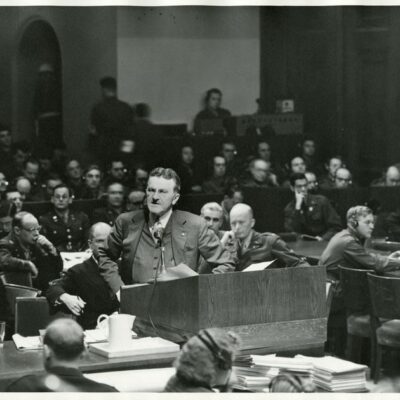
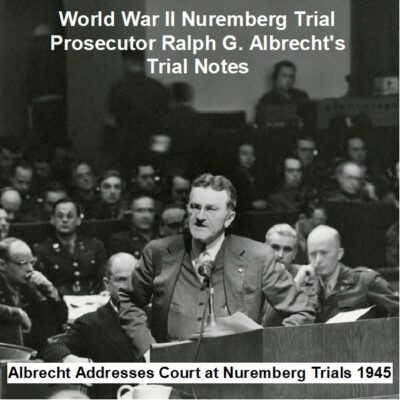
Trial Notes of Ralph G. Albrecht, Prosecutor at the Nuremberg Trials of World War II
$3.94 Add to Cart -
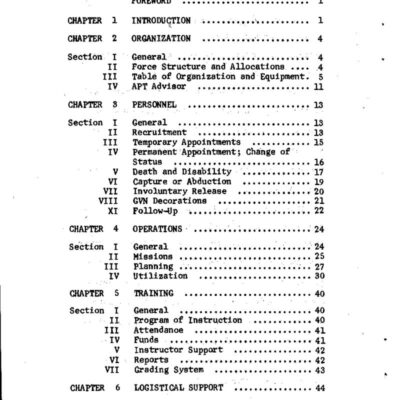
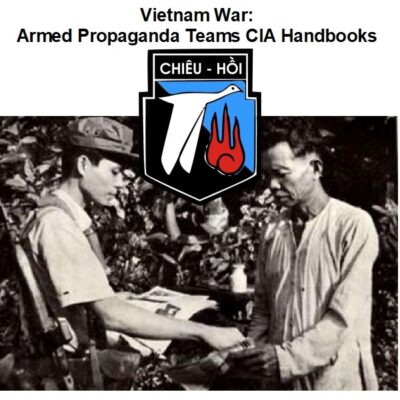
Vietnam War: Armed Propaganda Teams CIA Handbooks
$1.99 Add to Cart -
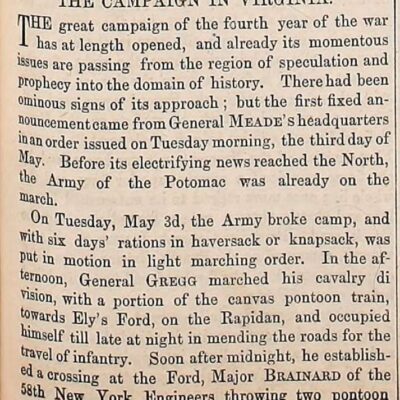
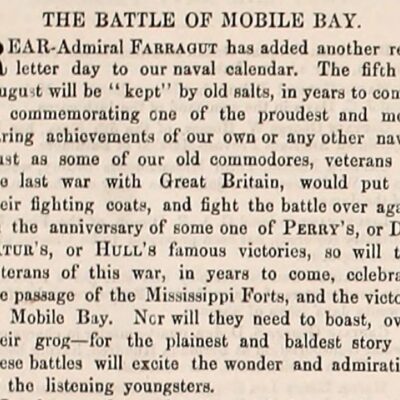
Civil War: Army Navy Journal & Gazette Volume 1 (1863 – 1864)
$19.50 Add to Cart